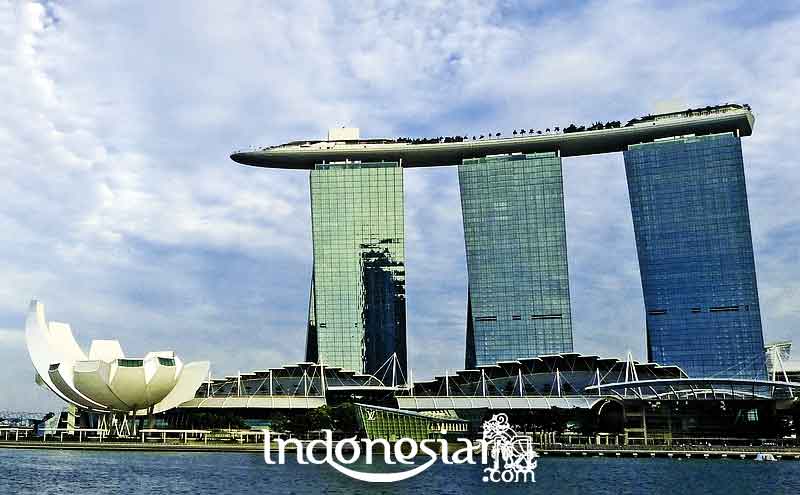News & Events
Makassar City, the oldest city in Sulawesi which is rich in historical journeys
- January 29, 2026
- Posted by: ASEAN
- Category: INDONESIA Tour & Travelling

South Sulawesi, is one of the provinces on the island of Sulawesi, which is known as the gateway to the trade route from and to eastern Indonesia. Well, this time we will discuss about the capital city of South Sulawesi Province, namely Makassar, which used to be during the Dutch colonial period called Jumpandang and changed to Ujung Pandang.
On 9 November 2014 yesterday, Makassar City celebrated its 407 year anniversary. Hmm, it’s quite old too. However, do we know that the name Makassar itself was born long before the anniversary of Makassar. The following is an overview of the history of the origin of the name ‘MAKASSAR’, starting with a story almost half a century ago and all of which are summarized from various sources.
It is told in the 1500s, a king of Tallo VI Mangkubumi Kingdom of Gowa, I Mallingkaang Daeng Mannyonri KaraEng Katangka, who also talked about Butta ri Gowa (born in 1573), dreamed of seeing a shining light that appeared from Tallo for three days. consecutive. This beautiful sparkling light shines all over Butta Gowa to other neighboring countries.
Until the third night, precisely on Friday night, 9 Jumadil Awal 1014 H or September 22 1605 AD, on the shore of Tallo beach, a small boat was seen docked. The screen was made of turban cloth and fluttered fast. You can see a man tethering his boat and then doing strange movements which are currently known as the Prayer movement. The light emanating from the man’s body made a scene that shocked the people of Tallo, who were suddenly busy talking about it up to the ears of the King KaraEng Katangka. In that early morning, His Majesty rushed to the beach. But suddenly the man had appeared “blocking” at the palace gate. White robed with green turban. His face is shady. His whole body emitted light.
The man shook the king’s hand, who was stiff with amazement. He grasped the hand and wrote a sentence on the king’s hand.
“Show this writing to the man who will soon come closer to the beach,” ordered the man and then just disappeared.
Your Majesty was surprised. She felt her eyes to make sure she wasn’t dreaming. He saw that the writing on his hand was clear. King KaraEng Katangka then rushed to the beach. Sure enough, a man was seen mooring a boat, and welcomed him.
Long story short, the King told his experience earlier and showed the writing on the palm of his hand to the man.
“Happy Majesty. This writing is two sentences of the creed, ”said the man. The man who wrote it was Prophet Muhammad Sallallahu Alaihi Wassallam himself. Your Majesty the Prophet has appeared in Your Majesty’s country.
This event is believed to be the beginning of the birth of the name “Makassar”, which is taken from the name “Akkasaraki Nabbiya”, meaning the Prophet appeared. The man who landed on the beach of Tallo was Abdul Ma’mur Khatib Tunggal known as Dato ‘ri Bandang, from Kota Tengah (Minangkabau, West Sumatra). His Majesty King Tallo I Mallingkaang Daeng Manyonri KaraEng Katangka after embracing Islam then became Sultan Abdullah Awaluddin Awawul Islam KaraEng Tallo Tumenanga ri Religion. He was the first King to embrace Islam in the plains of South Sulawesi.
Further, the original search for the name “Makassar” can be viewed in several ways, namely:
1. Meaning.
To be a perfect human being needs “Ampakasaraki”, that is, incarnate (embody) what is contained in the inner being is created by deeds. “Mangkasarak” manifests himself as a perfect human being with the teachings of TAO or TAU (science of inner belief). It is not as if some people understand that “Mangkasarak” is a rude person who is easily offended. In fact, the person who is easily offended is the person whose feelings are subtle.
2. History.
Sources from the Portuguese at the beginning of the 16th century have actually recorded the name “Makassar”. In the 16th Century “Makassar” has become the capital of the Kingdom of Gowa, and in that Century, Makassar as the capital has been known by foreigners, even in the 14th Nagarakertagama poem by Mpu Prapanca (1365) the name Makassar has been listed.
3. Language.
In terms of Etymology (Daeng Ngewa, 1972: 1-2), Makassar comes from the word “Mangkasarak” which consists of two bound morphemes “mang” and the free morpheme “kasarak”.
The morpheme tie “mang” means: a). Has the properties as contained in the root word. b). Becoming or incarnating as stated by the root word.
The free morpheme “kasarak” contains (meaning: a). Bright, real, clear, firm. b). Seen from the explanation. c). Large (small or fine opponent).
So, the word “Mangkasarak” contains the meaning of having a great nature (noble) and frank (Honest). As a name, a person who has the nature or character of “Mangkasarak” means that person is big (noble), frank (Honest). As on the lips as well as on the heart.
John A.F. Schut in his book “De Volken van Nederlandsch lndie” volume I, which discusses De Makassaren en Boegineezen, states: rainy season; the waterfalls are overflowing with boiling water, foaming, turbulent, often burning to the point of rage and not looking at anyone and anyone. , in peace can receive what is good and beautiful “.
In the expression “Akkana Mangkasarak”, it means to speak frankly, albeit bitterly, with full courage and a sense of responsibility. With the word “Mangkasarak” it can be known that if he is treated well, he is better. If he is treated subtly, he is more subtle, and if he is respected, then he will be more respectful.
Source : wikipedia
Leave a Reply Cancel reply
You must be logged in to post a comment.